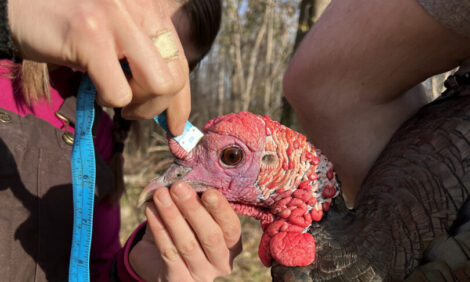



Weekly global protein digest: China buying pork for state reserves, news on California's Prop 12
Analyst Jim Wyckoff shares an update on the US futures market, USDA reports and global protein newsUS Senate Ag Committee approves two measures on livestock markets
The Meat Packing Special Investigator Act (S 3870) and Cattle Price Discovery and Transparency Act (S 4030). The special investigator bill would set up a separate office at USDA to investigate competition issues in the U.S. livestock industry. Opponents argue it duplicates efforts already on the books at USDA via the P&SA Act and would increase costs and regulatory burdens on smaller producers. The cattle pricing bill would establish five marketing regions in the continental U.S. and require a specified percentage of cattle be traded via the cash market. The National Cattlemen’s Beef Association says that mandating sales activity could take away other pricing opportunities for producers. Despite Sen. Chuck Grassley (R-Iowa) saying the votes are there for full Senate approval, that outcome is far from assured.
US House Ag panel hearing on dairy
The National Milk Producers Federation said the dairy industry is seeking consensus on a range of Federal Milk Marketing Order improvements, including the Class I mover, that can be taken to USDA for consideration in a federal order hearing. Mike Durkin, president of Leprino Food Company, testified on behalf of the International Dairy Foods Association, a processor group, that IDFA recommends that:
Congress require USDA to conduct regular cost of processing studies that will generate data for our industry to use to develop proposals to adjust make allowances. Current make allowances have not been adjusted in over 15 years, and as a result, they don’t reflect the cost of manufacturing today’s dairy products.
The House Agriculture Committee reauthorize and expand the Healthy Fluid Milk Incentives Projects in the Supplemental Nutrition Assistance Program (SNAP).
Congress pass permanent authorization of the Dairy Forward Pricing Program, which allows producers to enter into forward price contracts with milk buyers for milk used to manufacture Class II, III, or IV products. Current authority for this program expires on September 30, 2023, which means that no forward price contracts may be entered into after that date.
China continues pork buys for state reserves
China will buy another 40,000 MT of frozen pork for state reserves on June 24. Beijing continues to stockpile pork via weekly purchases to boost hog margins.
China’s pork imports plunged in May
China imported 130,000 MT of pork during May, down 10,000 MT (7.1%) from April and 65.7% less than last year. Through the first five months of this year, China’s pork imports at 680,000 MT fell 65.2% compared with the same period last year.
US backs pork group, Farm Bureau in Proposition 12 Supreme Court case
US government filed a brief to the Supreme Court supporting the NPPC and Farm Bureau challenge to California’s animal housing law, Proposition 12. In an amicus brief, Solicitor General Elizabeth Prelogar said California “’has no legitimate interest in protecting’ the welfare of animals located outside the state,” quoting a previous Supreme Court decision. “Voters in pork-producing States must determine what constitutes ‘cruel’ treatment of animals housed in those States — not voters in California,” the brief said, quoting a 1935 Supreme Court decision, Baldwin v. G.A.F. Seelig Inc. Of note, Senate Ag Committee Chair Debbie Stabenow (D-Mich.) previously called on USDA Secretary Tom Vilsack to support California's Proposition 12 before the Supreme Court.
Prelogar’s brief noted the U.S. “takes no position on whether petitioners will ultimately be able to prove that Proposition 12 unduly restricts interstate commerce” under the Supreme Court’s Pike v. Bruce Church Inc. decision. But at this stage, “petitioners have plausibly alleged that Proposition 12 will have substantial adverse impacts on the interstate pork market,” her brief said, urging the Supreme Court to reverse the 9th U.S. Circuit Court of Appeals’ decision to dismiss the ag groups’ challenge, and remand the case to the appeals court. “If petitioners prove those allegations, then those burdens are ‘clearly excessive in relation to’ what petitioners allege to be insubstantial or non-existent ‘local benefits,’” she said.
Background: Farm Bureau and NPPC are challenging the constitutionality of California’s Proposition 12. The state law seeks to ban the sale of pork from hogs that don’t meet the state’s arbitrary production standards, even if the pork was raised on farms outside of California. AFBF and NPPC argue Proposition 12 violates the constitution’s Commerce Clause, which restricts states from regulating commerce outside their borders. The brief states Proposition 12 “will require massive and costly changes across the entire $26-billion-a-year industry. And it inescapably projects California’s policy choices into every other State, a number of which expressly permit their farmers to house sows in ways inconsistent with Proposition 12.”
The Prop 12 case will be heard Oct. 11.
From sizzle to fizzle? Plant-based meats
Plant-based meats flew off the shelves during the pandemic and hype around Impossible Foods and Beyond Meat helped draw $2 billion of capital to the sector. Now, with more than 100 startups in the plant-based chicken nugget space alone and growth slowing, investors are worried meatless meat could fizzle out.









